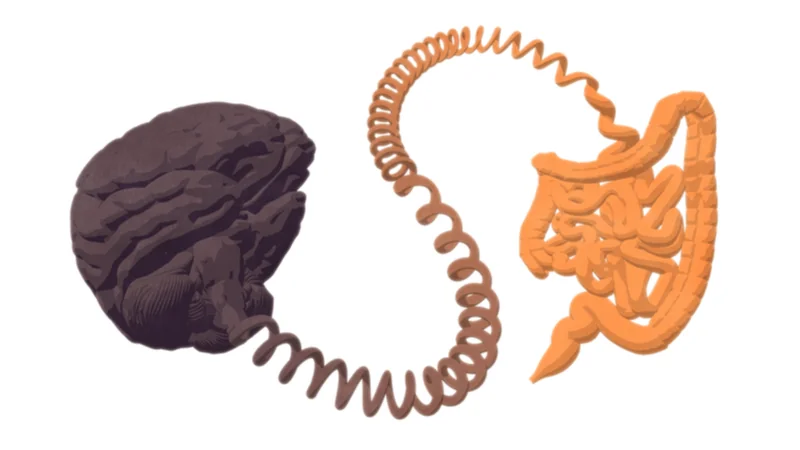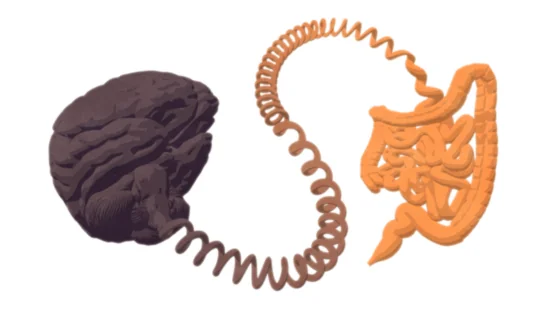Aging causes changes to the diversity and numbers of bacteria that live in our guts, and it has become a growing area of interest for researchers in recent years.
The gut microbiome
The gut microbiome is a constantly changing environment populated by vast numbers and types of archaea, eukarya, viruses, and bacteria. It is a complex ecosystem where many bacteria interact with, and can regulate, gut function, immune system, nutrient supply, and metabolism.
The gut contains many beneficial bacteria that also help to control the growth of pathogenic bacteria, prevent invading microorganisms, and maintain the intestinal barrier’s integrity.
Unfortunately, as we age, the microbiome begins to move away from a helpful environment, instead favoring harmful bacteria and inflammation. Accompanying this is the decline of many of the beneficial bacteria, which leads to further issues.
A number of researchers suggest that these age-related changes may in fact be a cause of aging and that they should be added to the nine established reasons we age. This research is still in its infancy, and the jury is out on whether or not changes to the gut microbiome are a cause or consequence of aging.
That said, the evidence to date supports that harmful changes to the microbiome can accelerate aging and that keeping it more youthful appears to slow down some aspects of aging.
Some researchers believe that detrimental age-related changes to the microbiome are the origin point of inflammaging , the chronic level of inflammation typically seen in older people. This is a persistent, low-grade inflammation that interferes with stem cell mobility, cellular communication, and the immune system’s ability to operate correctly.
Changes to the microbiome have consequences for brain health
This recent review discusses how microbiome changes can have far-reaching effects , even in the brain despite its protection by the blood-brain barrier [1].
There are various immune cells present in the brain that serve to keep it safe and protected from invading pathogens, and one of the more common types is the microglia. Between 10-15% of the total cells in the brain are microglia. They are tissue-resident macrophages, and they are the first and foremost form of immune defense in the central nervous system.
Like the rest of the immune system, they too become increasingly dysfunctional and inflammatory with advancing age, which is part of the decline of the immune system known as immunosenescence.
There is considerable evidence to suggest that inflammation in the brain is a key factor in the development and progression of various neurodegenerative diseases. The gut microbiome is also contributing to this inflammation as we age, which makes it a target for interventions that could prevent that from happening.
The review is worth a read if you are particularly interested in the impact of changes to the microbiome on the brain and, in particular, how it harms the microglia. This data makes it clear that changes in the microbiota can have a significant influence on the innate immune system in the brain.
Abstract
The immune system is crucial for defending against various invaders, such as pathogens, cancer cells or misfolded proteins. With increasing age, the diminishing immune response, known as immunosenescence, becomes evident. Concomitantly, some diseases like infections, autoimmune diseases, chronic inflammatory diseases and cancer, accumulate with age. Different cell types are part of the innate immunity response and produce soluble factors, cytokines, chemokines, and type I interferons. Improper maturation of innate immune cells or their dysfunction have been linked to numerous age-related diseases. In parallel to the occurrence of the many functional facets of the immune response, a symbiotic microbiota had been acquired. For the relevant and situation-dependent function of the immune system the microbiome plays an essential role because it fine-tunes the immune system and its responses during life. Nevertheless, how the age-related alterations in the microbiota are reflected in the innate immune system, is still poorly understood. With this review, we provide an up-to-date overview on our present understanding of the gut microbiota effects on innate immunity, with a particular emphasis on aging-associated changes in the gut microbiota and the implications for the brain innate immune response.
Conclusion
Restoring the microbiome to a more youthful state would be the obvious solution to reducing inflammation from this source, and there is a currently available solution, although it is somewhat crude.
Fecal transplants are one possible way to seed the gut of an older person with the youthful microbiome from a younger person. It would not be too difficult to organize a clinical trial to see how this affects aging in people; certainly, in animal studies, fecal transplants increased healthy lifespan.
Of course, more research and understanding of the ideal gut microbiome for youthful function is needed. Once we have a more complete understanding, more refined and personalized solutions can be developed that balance the microbiome based on individual needs.
Literature
[1] Mossad, O., & Blank, T. (2021). Getting on in old age: how the gut microbiota interferes with brain innate immunity. Frontiers in Cellular Neuroscience, 250.




